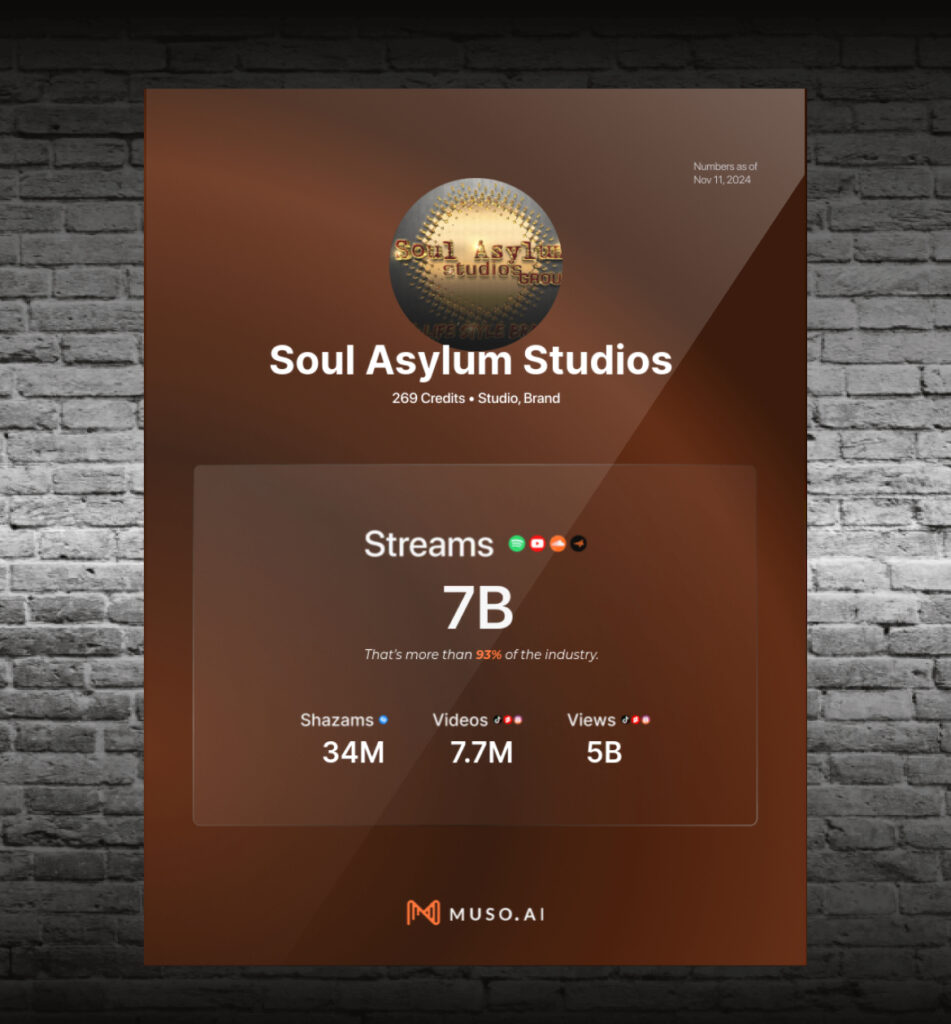If you are a musician looking forward to recording their first ever song in a music recording studio in Atlanta then this page is just for you. Recording music can be a tough task especially when you are a beginner in this field.
So, it is better to break down every step involved in music production in order to make it approachable, and enjoyable for you.
But, what are the steps that you should know before you start messing up your music production?
Here we go!
Doesn’t matter whether you are working on music, a podcast, a voice-over, or any other audio project. Having a clear understanding of the subject always pays off.
Each step in the music production process has a purpose that contributes effectively to the overall success of the recording. When you know how to start and how to end, it becomes quite easy for you to control the entire project. Also, you get better prepared to tackle any challenges that arise during the process.
This blog is nothing but a detailed discussion of all the 8 steps that you should keep in mind before recording your music. Doesn’t matter if you are just a beginner, or looking to sharpen your skills, this blog is complete in itself to guide you to be the best.
So, now the introduction part is over let’s move on to the main part of the blog- THE REAL PART.
( Also Read More – What to Look for in Recording Studios in Atlanta: 7 Key Considerations )
1. First Step- Gather your recording equipment:
The first thing before starting your music production is always to make sure you have all the necessities and all the equipment.

Let us know what you will need to build up a basic studio setup.
- Digital Audio Workstation: also known as DAWs is nothing but software that you will need to record, edit, and mix your soundtracks into something elegant.
- Microphone: if you want your music to stand out, you will need to make the notes clear, and for that, you need a clear recording. Which starts with having a microphone that suits the type of recording you intend to do. Whether it’s vocals or instruments, the microphone is all you need for clear tracks.
- Auto Interface: An auto interface is a device that connects your microphone, as well as other equipment with your computer. Computer, where you edit your music. The auto interface helps you convert all your analog signals into digital data. Data that the DAW can process.
- Cables: the next equipment you can’t continue without is cables. We need cables to set up the whole studio. From XLR cables for microphones to quarter-inch cables for instruments, we need them to connect everything together.
- Studio headphones, or Monitors: during mixing of soundtracks, editing, and recording we need to check for every minute detail. That is where the need for studio headphones, or monitors comes.
2. Plan your recording session:
Planning is what makes any process easy, and accomplishable. Make sure you already know, and have a clear idea of what you are expecting to make. Including the instrumental songs, sounds you will record, and how you want to record them. And also, how many takes you will take to finally make the track you are expecting.
Planning is not a big deal, but making plans before doing your work is better than making multiple mistakes in the process. Most music artists take an average of 2.5 hours to record a track. However, the time period totally depends on the features you might have and your level of preparation.
( Read more – Advanced Recording Techniques For Music Artists )
3. Record with a metronome:
A metronome helps keep your soundtracks on track, which means the tempo of your recordings is regular. However, it is essential that you are familiar with the tempo of your song.
It is suggested that you practise regularly with a metronome, without the goal of accomplishing anything. This will help you in many ways, one is that you will unlock the creative ways to do a recording.
Don’t be scared if you face difficulties delivering the notes. Just ask for a metronome, and tada, you are good to go!
“Rhythm is everything in music. Without it, you have nothing.” – Pharrell Williams.
4. Understand your voice and musical ability:
Before you record something, it is better if you know, or are aware of your vocals, music, and instrumental capabilities. A better understanding of yourself will help you adjust your performance better, and your potential to boost.
As the person in the recording studio with you, helping you create your first-ever piece will try to push you through your potential. Why?
Just to make you produce a combination that you didn’t prepare for.
That is why you should always practise your voice, and vocals, with different tones, speeds, and octaves.
As we always say- Practice makes a man perfect!
5. Always have a backup plan ready:
Life can get unpredictable, and so does your recording process. So, it is quite important to have a plan B, your backup plan ready.
Doesn’t matter how hard, and how many times you have practised your notes, vocals, and instrumentals. There are times when recordings don’t turn out as you had expected. So, it’s better to have a contingency plan ready with you. This will ensure your time isn’t wasted, and your song stays on track.
Have a second song ready to record for example.

6. The mixing process:
Let’s say you have finished your entire recording process. What’s next? Yes, it’s time for the mixing process.
The mixing process is where the engineers will take all the tracks that have been recorded. And combine them together to create a cohesive, elegant song ready.
However, before the mixing process starts you should have a clear idea of what you want the mix to sound. Make sure you communicate your ideas with your mixing engineer.
7. Take a break and listen to your piece:
Recording is a busy, long, and quite tiring process. So, it is important to take a break in between, to keep up with your energy. Taking breaks helps you focus better, and makes sure you are consistent.
So, grab a friend who will cheer you up, and help you get better ideas to make use of your break. You can ask them to film your recording on their mobile. Listen to the recording to see if it turned out as you had expected.
This way you will know the errors you are making, and will further find a way to tackle them.
8. Have patience:
Recording in Dolby Atmos studio Atlanta is work that requires patience and time. So, it is important for you to be patient the whole time, from the initial stage to the finalising stage. Rushing can negatively impact your work.
Final words:
Recording music can turn out to be a tough task especially when you are a beginner in this field.
Just remember to be organised, have a plan, and take your time.
In this blog, we discussed the 8 steps you should follow for a better recording. If you are someone who’s facing difficulties in finding the best music studios in Atlanta. Don’t worry, we got you. Dolby Atmos Studio Atlanta is one of the best recording studios in Atlanta for music production.

